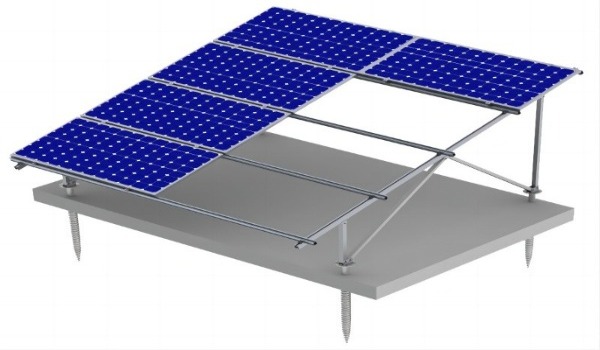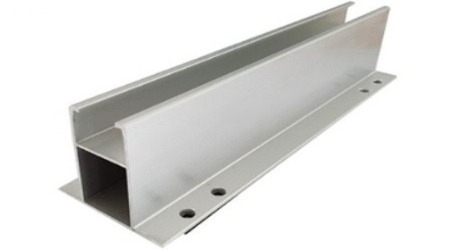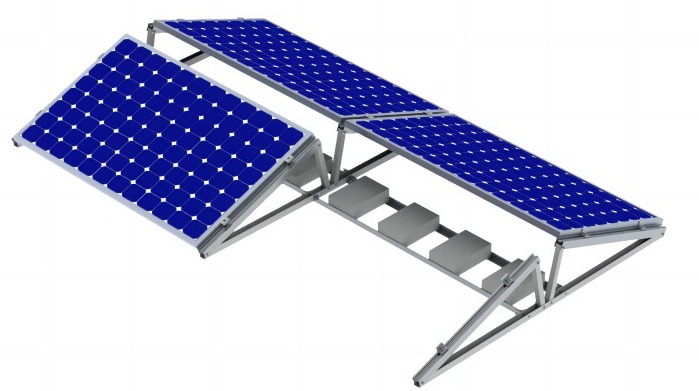Common Materials Used for Solar Panel Mounting Structures
Solar mounting structures are typically made from durable and corrosion-resistant materials that can withstand outdoor conditions. Here are some common materials used for solar mounting structures:

1. Aluminum: Aluminum is a popular choice for solar mounting structures due to its lightweight nature, corrosion resistance, and ease of installation. It offers good structural strength while being relatively lightweight, making it suitable for rooftop and ground-mounted systems. Aluminum structures are also recyclable, which aligns with the sustainable nature of solar energy.
2. Galvanized Steel: Galvanized steel is known for its strength, durability, and cost-effectiveness. Steel structures are robust and can handle heavy loads, making them suitable for large-scale ground-mounted solar installations. The galvanized coating provides protection against corrosion, extending the lifespan of the structure.
3. Stainless Steel: Stainless steel is highly resistant to corrosion, making it suitable for installations in coastal or corrosive environments. It offers excellent structural strength and durability, making it a preferred choice for long-term reliability.

4. Carbon Steel: Carbon steel is another option for solar mounting structures due to its strength and affordability. While it is not as corrosion-resistant as stainless steel or aluminum, carbon steel structures can be galvanized or coated to enhance their durability and protect against rust.
5. Fiberglass Reinforced Plastic (FRP): FRP structures are lightweight, non-conductive, and corrosion-resistant. They are often used in areas with high humidity, saltwater exposure, or chemical environments. FRP structures provide excellent electrical insulation and are commonly used for pole-mounted solar installations.
6. Composite Materials: Composite materials, such as carbon fiber reinforced polymer (CFRP), are gaining popularity in the solar industry. These materials offer a high strength-to-weight ratio, corrosion resistance, and excellent structural properties. They are lightweight, yet robust, making them suitable for various mounting applications.

The choice of material depends on factors such as project requirements, environmental conditions, load capacity, cost, and installation location. It's essential to consider factors like durability, maintenance requirements, and local regulations when selecting the appropriate material for solar mounting structures. Consulting with experienced professionals or structural engineers can help in making the best material selection for a specific solar project.
Learn more at www.alttower.com
.jpg)
评论
发表评论